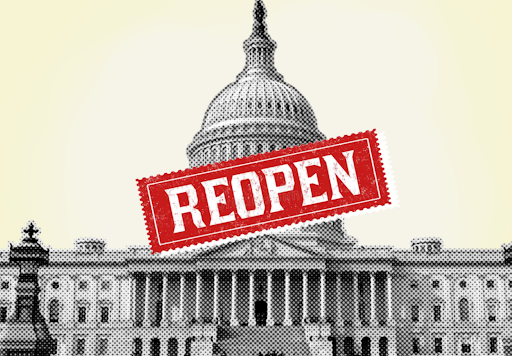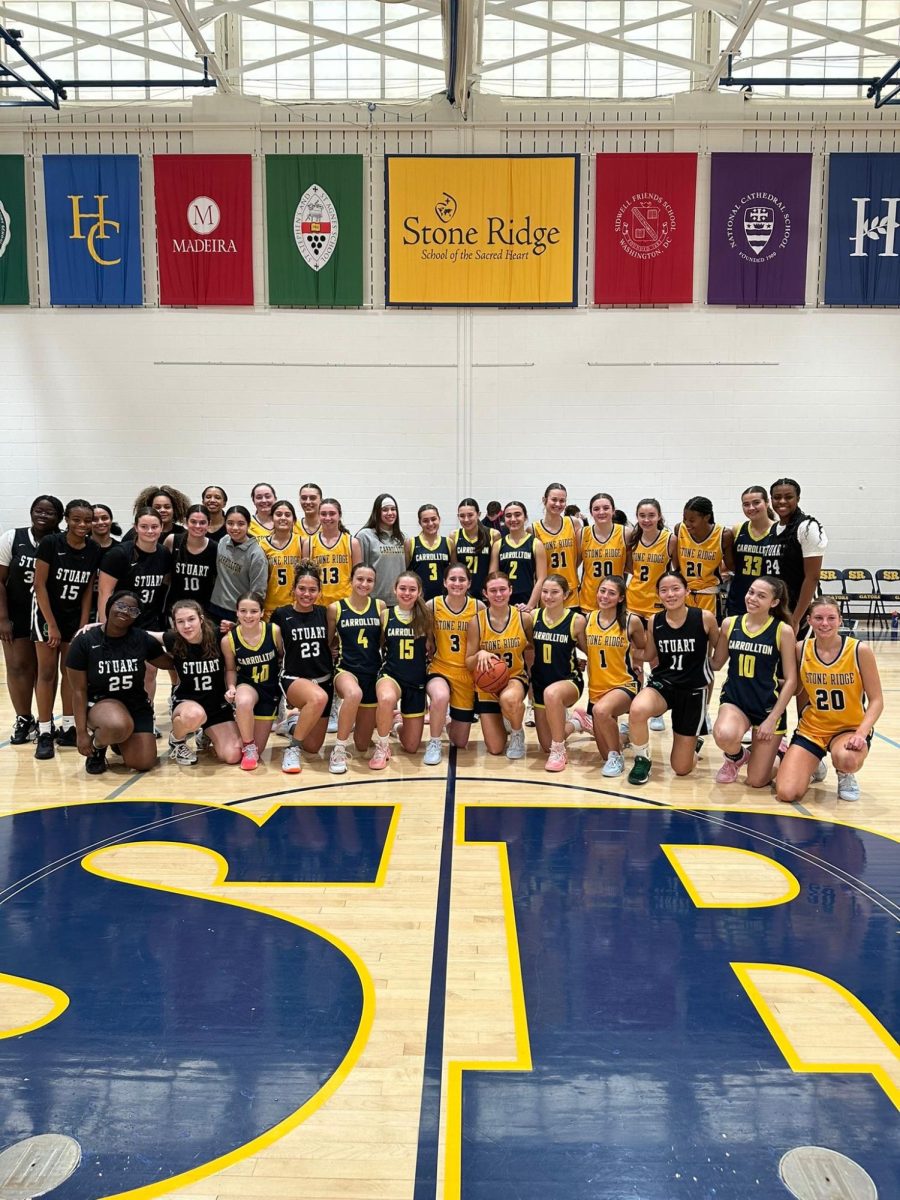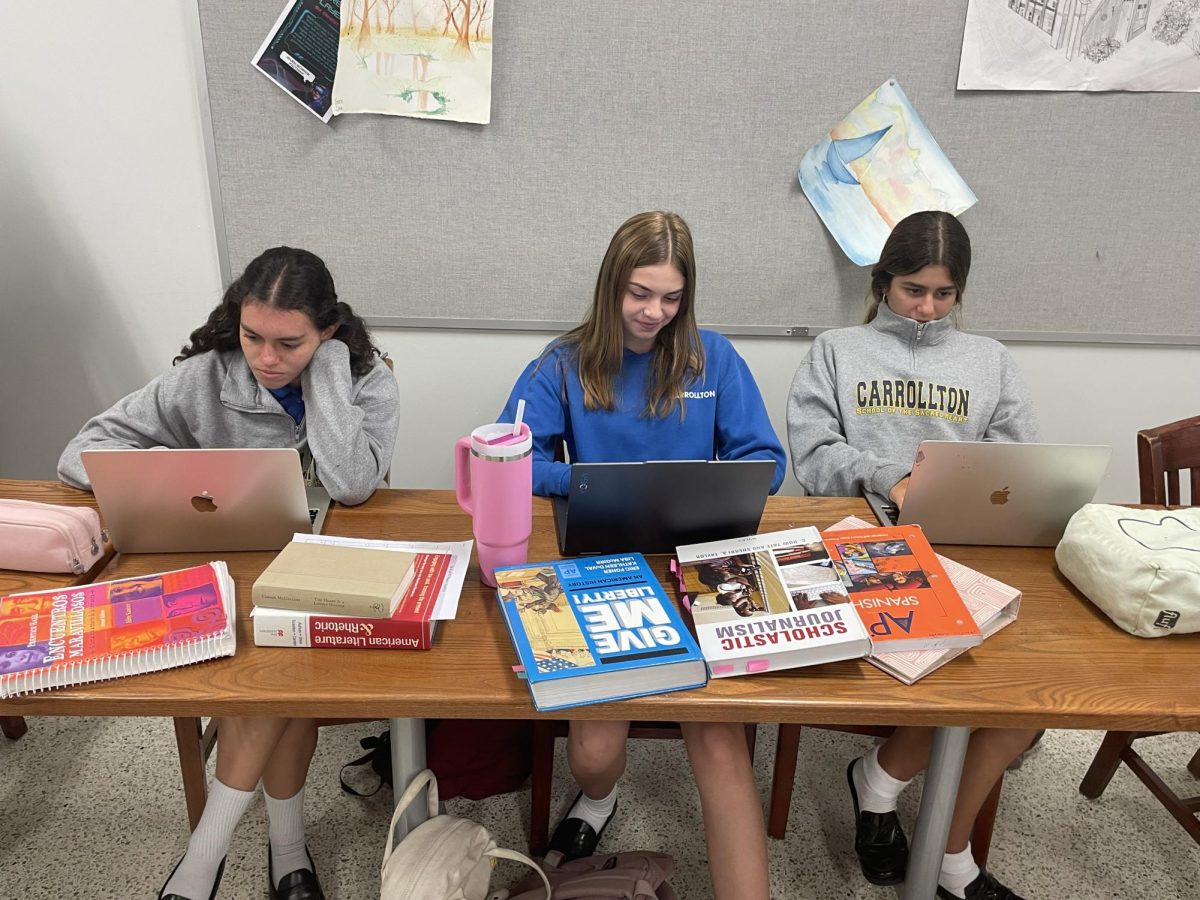Mini Session was a time of growth, exploration, and service—a break from the classroom that allowed students to experience learning in a new way. But before we could reach that exciting moment, we were buried under a mountain of major assignments, projects, and tests, making it feel less like an opportunity to explore and more like a desperate sprint to the finish line.
According to a survey of 160 Upper School students, fifty-four had seven or more major assignments the week before Mini Session, and seventeen of those students had ten or more.
“I have seen many students feeling overwhelmed,” said Ms. Otero, the 9th and 10th grade academic advisor. She compared the scheduling crunch to a traffic jam. And the problem was only worsened by Conge the previous Friday which, while fun and necessary, pushed everything to the week before Mini Session. “Had we not had Conge, it might have been more manageable,” she said.
As it happened, students were left feeling the pressure. Because of all of the stress, Bella Guitian ’27 felt she could not get excited about Mini Session.“There was not much time left because the school year was ending,” she said. The time crunch forced her to prioritize major assignments over minor ones, and there was no escaping the long nights of studying even though she should have been getting excited for Mini Session.
In addition to feeling overwhelmed, some students felt the workload impeded their ability to learn. Guitian shared that losing sleep to keep up with the workload directly affected her ability to focus and to retain information.
Upper School Math Teacher Ms. Sudasassi acknowledged the challenge of balancing curriculum deadlines while considering students’ well-being before Mini Session. “Knowing the dates of Mini Session so far in advance helped me plan my lessons and assessments, but that may have translated into many teachers trying to fit in quizzes and tests before the weeklong break,” she said.
Ms. Sudasassi pointed out that many teachers found themselves in a difficult position. “By scheduling assessments before the weeklong Mini Session, teachers could ensure that students had adequate time to attend office hours and master the material being assessed,” she said, whereas “if a teacher scheduled the assessment for after Mini Session, the students may have experienced a knowledge deficit because of the prolonged time away from the material and no access to teachers or office hours during the Mini Session week.”
One possible change she suggested for next year is to ensure that the existing two-major-assessment-per-day policy is strictly adhered to. She also noted that in her own classes, she adjusted for the pre-Mini Session workload. “The week before Mini Session I did not teach any new material in any of my classes. Instead, I dedicated my teaching days as review days for the assessment that was scheduled for that week,” she said.
There is no easy fix, but one clear solution is to avoid scheduling Conge right before Mini Session. As Ms. Otero and Upper School Academic Advisor Ms. Abreu pointed out, having at least a two-week buffer could relieve some of the pressure. Teachers could also reconsider whether all major assessments need to be squeezed into this one week or if some could be postponed until after Mini Session. Finally, administrators could examine whether March is the best time for Mini Session and could also consider shortening it in the future.
Mini Session should be a time of excitement and opportunity, not exhaustion. If the goal is for students to thrive both academically and in their Mini Session experiences, then a more balanced workload leading up to it is necessary. Otherwise, we’re just running on empty before we even get the chance to explore.





































